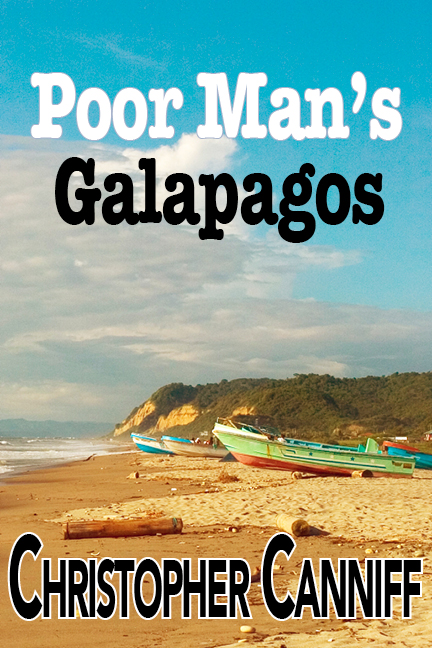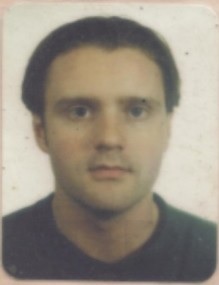by

Tómas Harvey is an engineering student living on a small, impoverished island in Ecuador. He is conscripted into military service in the border war with Peru where he is certain he will die a senseless death. His father, a renowned British travel writer, is accused of embezzling government funds and suddenly leaves the island. While searching for answers, Tómas embarks on a journey of discovery that may lead him closer to his father and to his biological mother who abandoned him at birth, and away from his home country for the first time in his life…
The novel explores how duty shapes a family over generations, the struggle for self-discovery, and how the abandonment of selfish obligations in favour of altruism can lead to a renewed faith in humanity, and ultimately, in ourselves.
Tómas headed home. Everyone in the family would be there. He walked by Isla de la Plata’s only cliff overlooking the Pacific’s great plain. His shirt stuck with sweat to his lean frame, the business end of a carbon-filtered cigarette crunched between his fingers in one hand and the bottle of sugarcane alcohol with its rag fuse coddled in the other. Twenty metres below, the sea splashed against convoluted rocks alive with cangrejos, crabs that climbed and receded with the waves of the outgoing tide. His mother Violet had come to this spot often before she left the island, and she must have contemplated her departure while sitting on these same rocks, thinking of leaving her newborn son behind with the gift only of a name. It was easier for her to leave, Montgomery told Tómas, as Violet never once allowed herself to gaze into her baby’s eyes. There was no chance for feelings of protection or maternal love to emerge.
READ MOREShe could learn to forget his tiny hands, his facial contortions, and his minute arms stretching toward hers. But his eyes, Montgomery had always said, his eyes she could never forget. Nothing would burn itself into her memory like that.
Now he could see fishing boats returning to their ports, followed closely by an array of sea birds. The nets glimmered with picudo fish, the fishermen wearing the same hats that protected them from both sun and rain. The setting sun cast stretched shadows beneath a long line of clouds, where northern and southern air currents collided to flow inland and create the island’s only seasons, wet and dry.
COLLAPSESharon Crawford, review from Goodreads wrote:"Tómas struggles, with conflicting notions of duty and opposing family obligations, to find his identity and his place in the world. He embarks on a journey of self-discovery struggling to come to terms with his relationship with: his father, an expat British travel writer, who is away more than he is at home; his birth mother in Canada who he has never met; and his adopted Ecuadorian mother who is devoted to him but at odds with his evolving vision for his future.
Poor Man’s Galapagos is an engaging character study played out against the political turmoil of the time and infused with rich descriptions of the isolated corner of the world in which it takes place."
"Christopher Canniff’s latest novel Poor Man’s Galapagos is the coming-of-age story of an 18-year old university student, Tómas Montgomery Harvey. But that’s where similarity to the usual coming-of age novel ends because of the complicated plot Canniff has woven. First there is the setting – a small Ecuador island, Isla de la Plata. The novel is set from August 1987 into 1988. A war between Ecuador and Peru has been ongoing for many decades. Military conscription is mandatory and the bottom line for Tómas is he is afraid to go to war, afraid of being killed. This is first hinted at in the novel’s beginning when Tómas, working with student revolutionaries, does not have the nerve to light and throw a Molotov cocktail at a passing government vehicle.
Friends and so-called friends of Tómas and his father have differing approaches to keep Tómas out of the military. His friend, Juan Carlos, the newspaper editor of the island newspaper and a former lawyer, tries to go the court route with conscientious objection. Edwardo Delgado, a long-time friend of his father, at his father’s wishes, hires Tómas to work as the engineer in charge of the large hotel resort Edwardo is building, which provides a means for Tomas to get a military card and an exemption from military service.
Tómas’ father (is) the legendary freelance photojournalist, Montgomery Harvey. All his life Tómas has lived in the shadow of his father, always feeling no love from his father, who spent more time travelling for his stories, than with his son and wife, Veronica. As the novel opens, Montgomery has been linked in the press with embezzling funds and after a meeting with Tómas on the beach, he says he is leaving for good. After his father departs, Tómas decides he has to reconnect with him and find his birth mother. Only by choosing his own options, and following through, despite many hurdles, is Tómas able to transition through the murky road of becoming an adult.
The novel is told with the alternating viewpoints of Tómas and Montgomery Harvey, which works well to provide details to the reader, but never revealing too much at a time."





